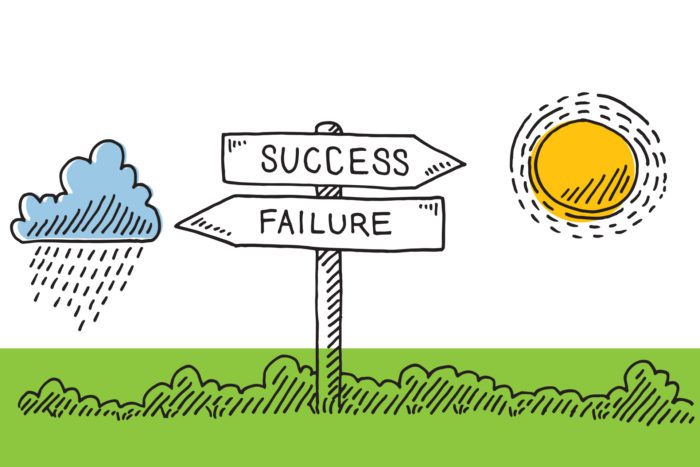Have you ever seen a business you love close up shop and wondered why it happened? It can be especially perplexing when you see similar companies thrive in the same market. So, what is the difference between a successful and unsuccessful business or an entrepreneur who makes $100,000 per year and one who makes $1 million per year?

Many people claim to have the answer to this question. Some credit luck. Others say it comes down to hard work, dedication, or connections. In most cases, it’s a combination of all of these factors. Though you can’t always pinpoint one reason why one person succeeds where another fails, several factors tend to set some people ahead of the pack. We’ve shared some of them with you before, and now we’ve got a few more.
Education

Nothing against college — it opens doors for a lot of people! — but that’s not necessarily the kind of education we’re talking about. Many successful people don’t have a degree, and some college graduates flunk out when they hit the real world. What matters is a constant desire for knowledge and personal improvement.
When was the last time you attended a training or seminar, read a business book, or studied a magazine about your industry? If it has been a while, you’re passing up an excellent opportunity. Whether it’s about sales, marketing leadership, management, accounting, or some other aspect of your business, there’s always something out there you don’t know. Successful people work to fill that gap. If you think you can’t afford it in terms of time or money, think about whether you can afford to fall behind the competition and lead your business astray.
Accountability
President Harry S. Truman is famous for saying, “The buck stops here,” and good business leaders say the same. It’s easy to blame everyone else for your problems and a lot harder to be introspective and admit where you might have gone wrong. Accountability is a crucial characteristic of any business leader because if your failures are always someone else’s fault, you’ll never find ways to improve.
Maybe an employee made a big mistake. But who trained them? If it was someone else, who hired the person who trained them? At some point, it comes back to you. Not taking ownership of what happens in your business signals weakness and ineffectual leadership. The head of the company also creates their business’ culture from the top and teaches by example. If you want your employees to meet deadlines, you should, too. They’ll respect you more and work harder. And when things go wrong, you’ll feel compelled to actually fix them.
Mentorship

In the end, none of us gets where we are entirely on our own. We each had parents who raised us, teachers who encouraged us, or colleagues who believed in us. The most successful business leaders in the world usually had a mentor. If you don’t, you’re not alone — Forbes reported that only 37% of people have a mentor, even though 76% think having one is important. So, what’s holding so many people back?
It can be hard to ask for help, and mentorships don’t always fall in your lap. You have to take the time to build relationships with other people, and that means getting outside of your comfort zone. Go out of your way to meet people in your industry, talk to people you see in passing, and ask for advice. It may be uncomfortable, but the effort will be worth it. And not everyone just happens by their mentor. Many professional career coaches have experience helping people and businesses grow.
What About Luck?
Luck exists. Some of us are born into wealthy families, and some aren’t. Some people get terribly ill while others remain healthy. Where you were born, who your parents are, and lots of other factors fall outside our control. So yes, luck does play a bit of a role in whether or not someone is successful.
But often, what other people think is luck is actually just hard work. Maybe a successful person was in the right place at the right time — but it didn’t happen by magic. A lot of networking, research, and sweat equity likely made that connection happen, and there were probably many failed efforts you didn’t see. And while you might see overnight success, the entrepreneur who earns that label rarely sees themselves that way. That’s because they were there for all of the strategy sessions, years of education, and long nights it took to make it big.
Sadly, not everyone who works hard will succeed, and sometimes, businesses truly fail for reasons beyond their owners’ control. But you have more power over your future than you probably give yourself credit for. Successful people know that you make your own luck and then get to work.






